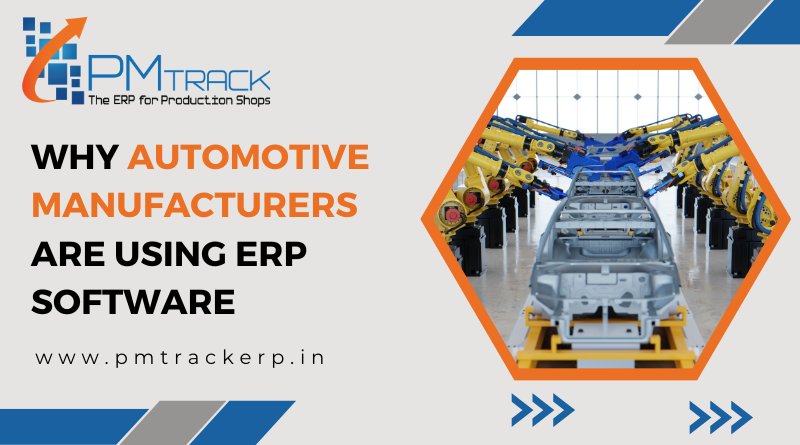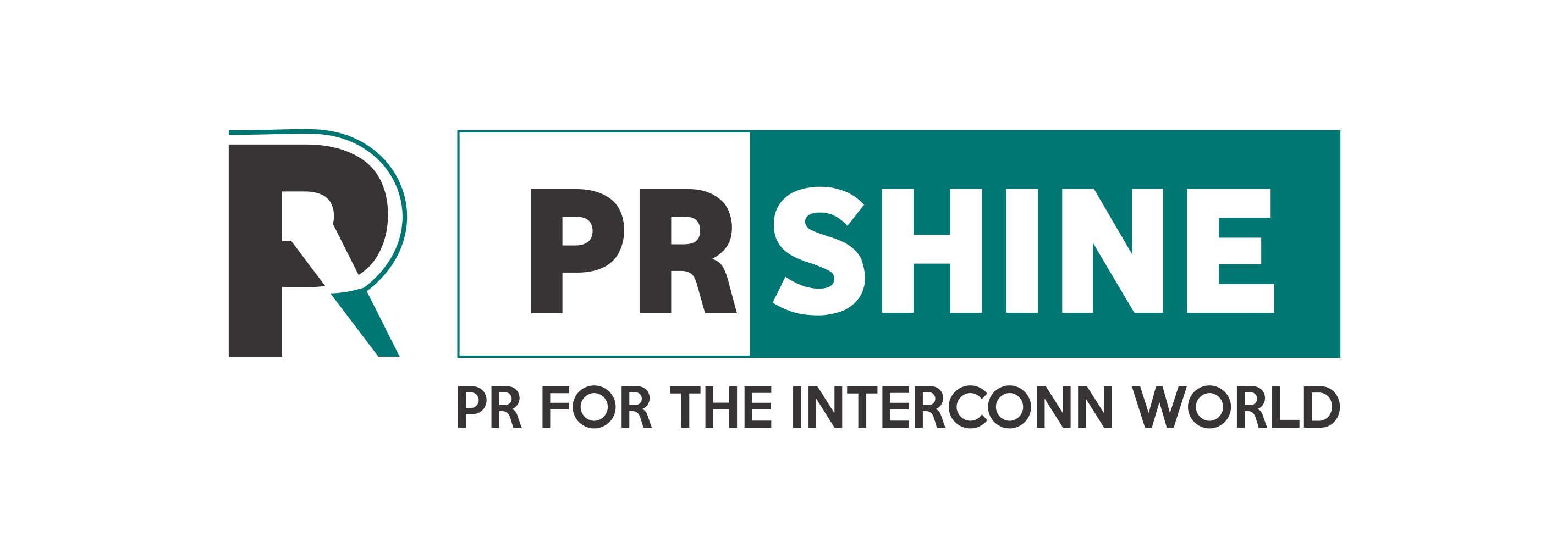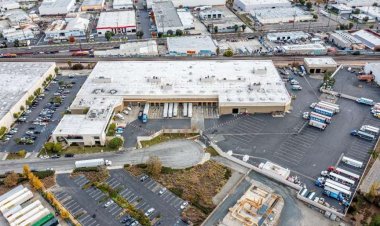Why Automotive Manufacturers Are Using ERP Software
Any automotive manufacturer depends to a great extent on steady inventory and production processes; deploying PMTrack ERP software with a robust inventory management can help them scale their business efficiently in less time period.

The auto industry is on the verge of a revolution. It plays a massive role in the global economy. As a dynamic and customer-driven industry, the automotive sector deals with components of different sizes and varieties that are required in varied workstations for assembling, polishing, and painting automobiles and their parts.
The global automotive industry will continue to grow for the foreseeable future. Manufacturers are faced with a growing demand for electric vehicles, autonomous vehicles, and connected mobility. A deep focus on customer satisfaction remains. Recalls and quality-related issues can negatively impact the original equipment manufacturers’ (OEMs) brand. As a result, the supply chain is under increased pressure to transform the organization while maintaining profitability, providing high-quality products, and delivering on time.
ERP systems have added more value to organizations by optimizing operations, reducing costs, and maximizing profitability when it comes to automotive industry software. From integrating value chain activities to maintaining warehouses, improving CRM, and real-time information access for enterprise visibility, ERP for the automotive industry helps you to reduce errors and make smart decisions.
So, Let’s Take A Look At Why Modern Manufacturers Are Using Automotive-Specific ERP.
1. Increased Real-time Data Access
Modern ERP systems allow users to streamline the information flow within an organization. It consolidates the data of every department and empowers decision-makers to make quick and informed decisions. Automotive industry manufacturers need up-to-date information on customers, resource availability, employee management, and manufacturing status. ERP provides this data. Manufacturers can view, edit, and manage this information in one solution.
2. Secured Data
Organizations create and maintain tons of content pieces – human resource policies, quality control reports, forms, business plans, barcode labels, batch numbers, routing reports, etc. From reports to customers’ data, an ERP helps you manage the end-to-end processes on a single system. When deployed on the cloud, data is safe and driven by automatically scheduled backups to prevent failure. Data security, updates, and storage are managed by the cloud provider.
3. Enhanced Inter-organizational Communication
ERP removes communication barriers between teams and departments. Every authorized person has access to view and edit data. With an ERP solution, management can have a view of the entire organization and activities going on in departments including production, quality control, supply chain management, procurement, shipping, human relations, finance, warehouse, etc.
4. Inventory Optimization
Surplus inventory is an undesired expense while stock-outs can hamper customer needs. Automotive industry manufacturers need to carefully manage inventory and warehouse operations. PMTRACK ERP with SAP Business One facilitates report generation, recording of warehouse transfers, capturing of inventory, and processing of tasks and transactions on the plant floor.
5. Automation of Tasks
With electronically generated reports and sheets, you don’t need to manually generate delivery notes and invoices; everything is done at the touch of a button. This saves money, time, and effort, and reduces errors.
6. Lower Costs and Higher ROI
When an ERP is hosted on the cloud, manufacturers don’t need to have multiple servers or recruit a team of IT professionals for installing and configuring the systems. It is all done by the cloud providers. A modern ERP provides lowers costs and improves ROI with optimized production, greater visibility, increased efficiency, and improved customer satisfaction.
7. Employee Efficiency
Happy employees work with greater efficiency. When using an ERP system you can automate operations and eliminate data redundancy which helps improve employee satisfaction and efficiency. ERP also allows data to be accessed with handheld devices so employees can work remotely.
8. Optimization of Resources
An ERP solution drives lean manufacturing and helps businesses develop a lean supply chain that can ensure optimum utilization of resources, improved lead time, and less waste. When tasks are assigned to the person with the right skills, you receive the best outcome. ERP software allows you to match skills with machinery on the shop floor.
Conclusion:
Determining whether to implement an ERP application in your automotive business can be difficult in and of itself, and given the high cost associated with it, it is undoubtedly not a decision to be made lightly.
With the right ERP, you can eventually experience significant cost savings, increased productivity, and increased profitability.
Therefore, it is essential that you take into account a variety of factors when selecting the ERP for your business.
Think about your objectives: are they to strengthen customer relationships, improve supply chain management, increase transparency, enhance manufacturing and production processes, or pursue business expansion while limiting unnecessary spending?
All of these objectives can be supported, and then some, by a powerful ERP system like PMTRACK.
Schedule a demo with our team, and they will be happy to explain how it functions and address any questions you may have. PMTRACK ERP provides the Best ERP solution for the automotive manufacturing industry to schedule a free demo, get in touch with our team at info@pmtrackerp.in












